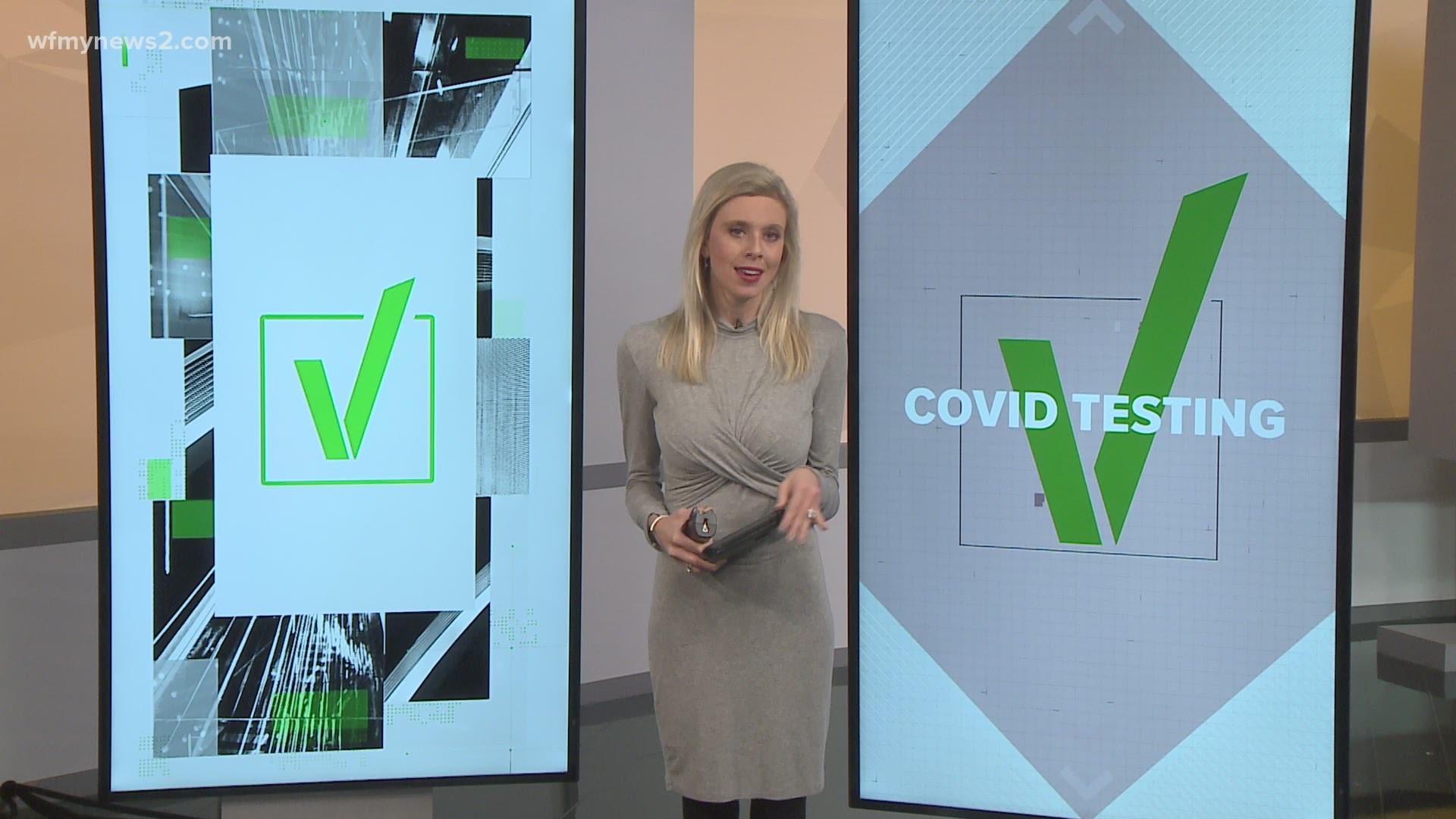GREENSBORO, N.C. — Being proactive in combatting coronavirus is a positive -- except, in the instance, it's negative -- as in false negative.
COVID-19 testing is top of mind, a week after the Thanksgiving holiday. Health experts warned the holiday would cause a surge in cases due to indoor celebrations with people who don't live in the same households.
Triad testing sites are bracing for a continued influx of people who want to find out if they were infected at their gatherings.
VERIFY QUESTION
Is it true you should wait a few days after possible exposure to get tested, to make sure your results are accurate?
Yes (as long as you quarantine in the meantime).
VERIFY SOURCES
- Centers for Disease Control
- MIT Medical Center
- Anals of Internal Medicine
VERIFY PROCESS
The CDC's testing page explains if you test negative for COVID, that means you probably were not infected at the time of your sample's collection. However, that does not mean you will not get sick. You might test negative if you got the swab early in the infection and could test positive later in the illness.
MIT Medical cites a recent Anals of Internal Medicine study that looked into the probability of a false negative on a COVID test. On the first day after a probable exposure, the likelihood of a false negative was 100%. That percent decreased with each passing day. By day five, an infected person had only a 5% chance of a false negative. Usually, symptoms develop five to six days after exposure (if at all).
MIT's conclusion? The optimal time to test for accuracy is five to seven days after probable exposure. But, remember, you can spread the virus even before you are symptomatic, and some patients never develop symptoms. The CDC's revised guidelines released Wednesday say if you know you are exposed, you should quarantine for seven days, if you get a negative test result and 10 days if you don't get tested (as long as you aren't showing symptoms).
VERIFY CONCLUSION
It is true you should wait a few days after probable exposure for better testing accuracy or get tested more than once in the infection window. Quarantine simultaneously for the recommended amount of time.
Do you have a VERIFY inquiry? Submit a post, screen shot or selfie video to Meghann Mollerus via:
Facebook: Meghann Mollerus News
Twitter: @MeghannMollerus
E-mail: Mmollerus@wfmy.com

